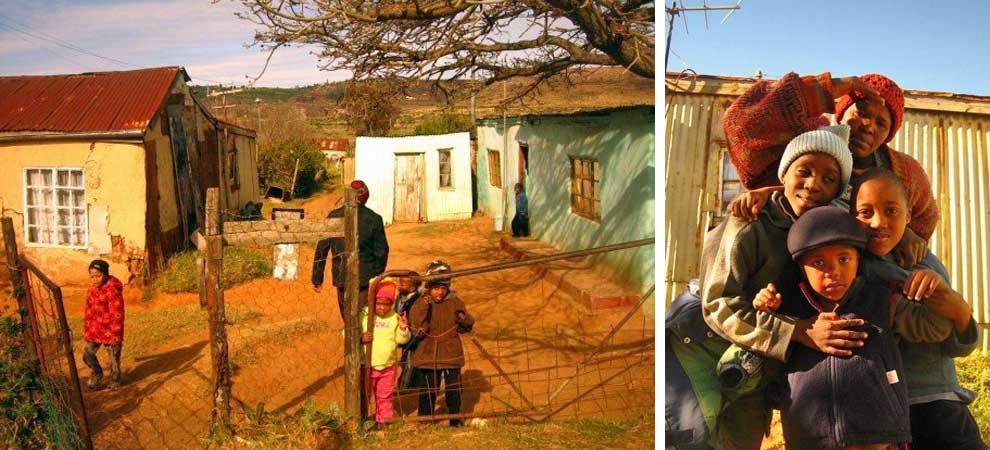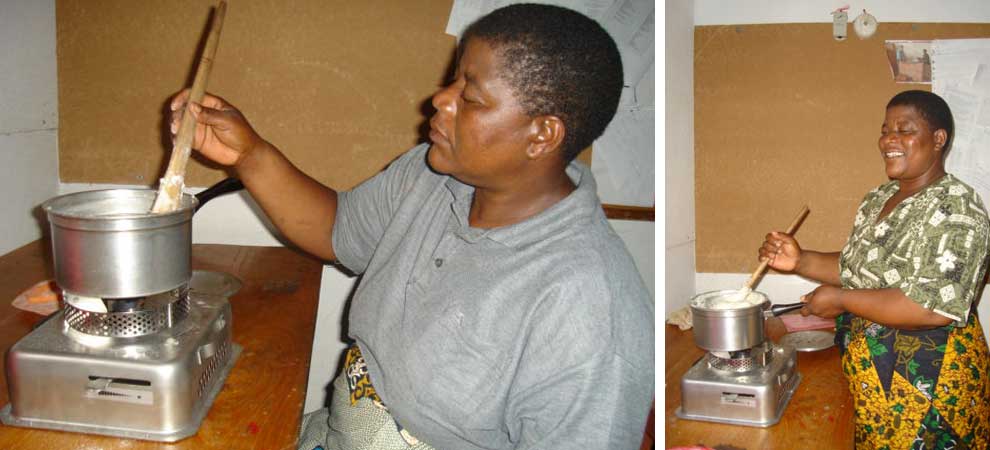South Africa (2001)
Our first stove and fuel research study took place in 2001 in eMbalenhle Township, 140 km from Johannesburg. Families approved of the stove’s heating power, cost of fuel, lack of smell compared to kerosene and even the stove’s appearance and size. This pioneer study, using methanol as a fuel, was the first pilot to provide insight on how households perceive and value alcohol-fueled cooking and lighting technologies. More than a decade later, PGI is returning to South Africa to help partners introduce ethanol cookstoves and the small-scale distillery approach.
Read more about the PGI South Africa study
Malawi (2007)
Malawi is the second country in Africa to produce ethanol fuel, and current production has reached 18 million liters per year. Gelfuel stoves were introduced in Malawi to capitalize on the renewable fuel. In 2007, together with Energy Resources Group, we conducted a research project to test the liquid-ethanol CleanCook stove against gelfuel and improved charcoal stoves. The research, funded by the UNDP, found that the CleanCook stove outperformed all other stoves including wood, charcoal, and gelfuel. The most significant finding was that gelling ethanol adds price, decreases energy efficiency, and creates safety concerns as gelfuel stoves are often difficult to extinguish. This small but detailed study showed a promising market for ethanol fuel and the ability to compete with gelfuel and charcoal.
Read more about the PGI Malawi study
Fact: Gaia, the Greek goddess of the Earth, is known for bringing elements into harmony—just as Project Gaia seeks to harmonize fuel production and use to sustain human life.
About South Africa
- Population | 51 million
- 18% burn solid fuels
- Average daily income | $19.93
About Malawi
- Population | 16 million
- 95% burn solid fuels
- Average daily income | 94¢




